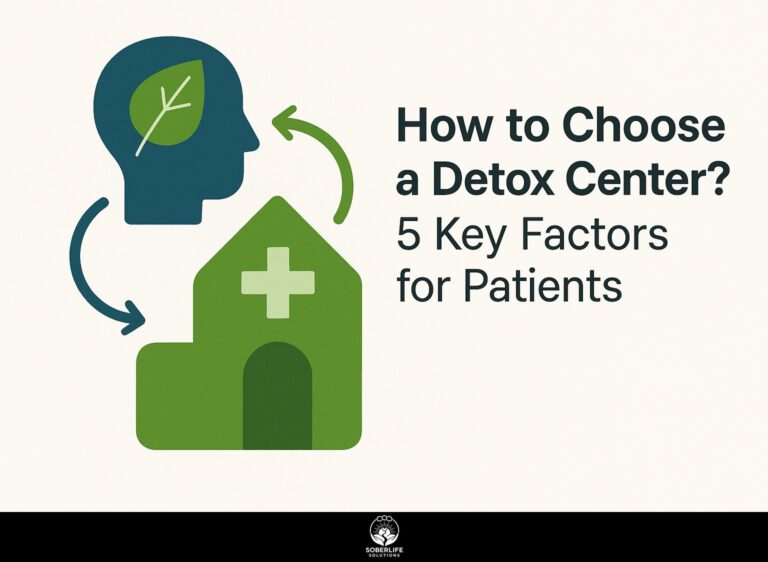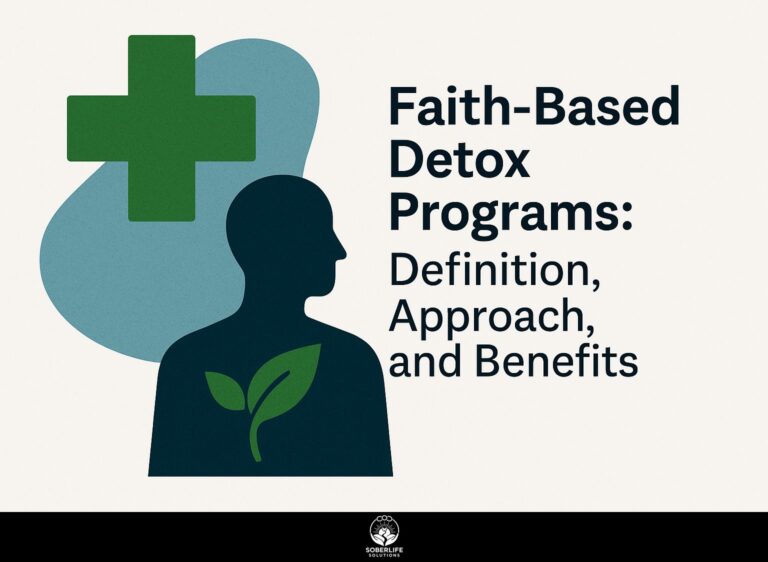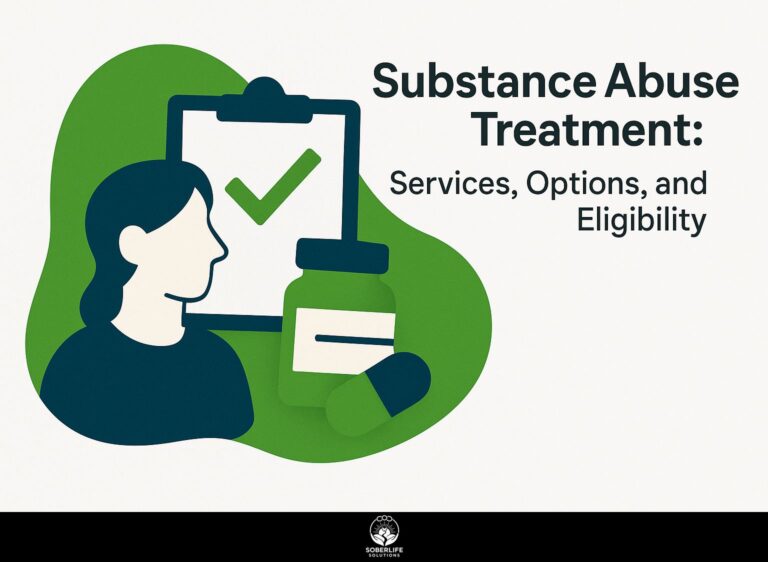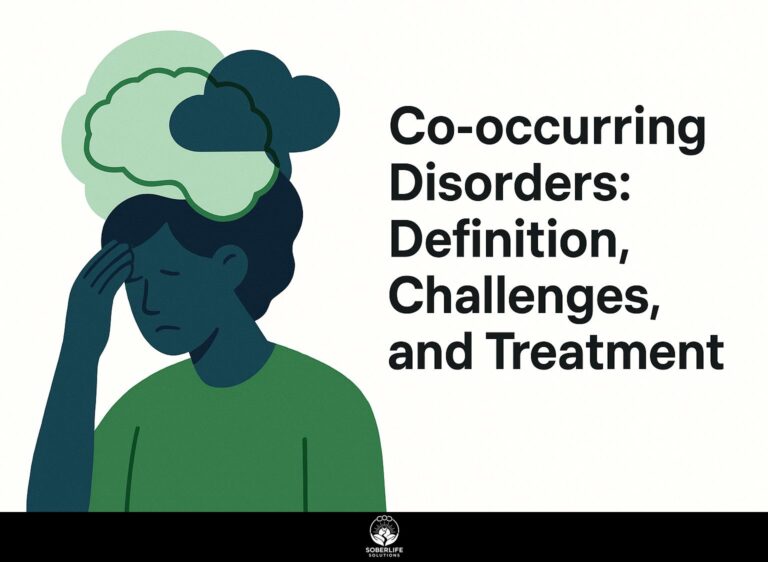Nutrition Therapy in Detox: Benefits, Importance, and Guidelines
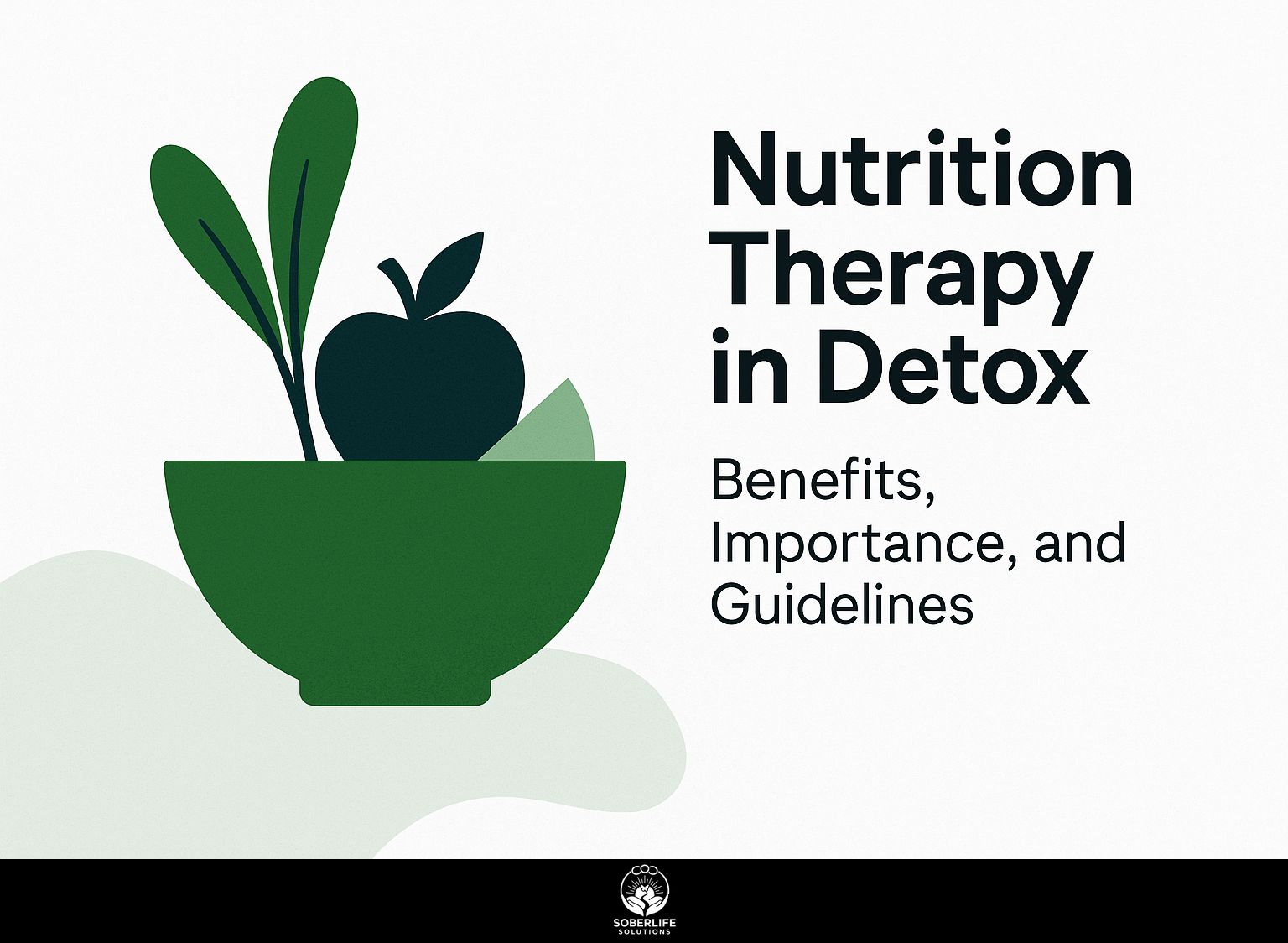
Cleaning the body is important during alcohol withdrawal, and diet support is key to this. A lot of people in recovery have difficulty with unhealthy eating patterns and lack essential nutrients, so the knowledge of a dietitian is needed to maintain proper nutrition. This article looks at how nutrition therapy can help with detox, offering advice to help improve physical and mental health during recovery. Learn how specific eating habits can lead to a healthier and more balanced lifestyle.
Key Takeaways:
Definition and Overview
Nutrition therapy is an organized method that uses diet changes to improve recovery during detox, targeting common nutritional gaps in substance use disorder.
Nutrition therapy in detoxification has multiple objectives. The main goal is to improve nutrition by focusing on foods like fresh fruits, vegetables, lean proteins, and healthy fats, which contain a lot of vitamins and minerals.
It supports metabolic functions by ensuring adequate hydration and correction of electrolyte imbalances, often facilitated by supplements like magnesium and B vitamins.
It helps reduce withdrawal symptoms through specific dietary choices, such as incorporating omega-3 fatty acids found in fish, which can alleviate mood swings and anxiety, as emphasized in the importance of nutrition care during the addiction recovery process (according to MDPI).
Historical Context
Historically, nutrition’s role in detoxification has evolved significantly, with early practices focusing primarily on caloric intake rather than nutrient quality.
As knowledge of nutrition grew, detox programs started using certain dietary methods designed to improve metabolism and clean the body. Today, nutrition therapy involves customized meal plans full of antioxidants, vitamins, and minerals, focusing on whole foods instead of processed ones.
For example, a modern detox regimen might feature:
- Green smoothies
- High-fiber meals
- Hydration strategies using herbal teas
This change highlights the need to address malnutrition and improve health results, showing that nutrition is important for overall health. To explore a related aspect, WebMD discusses the crucial link between nutrition and addiction recovery, emphasizing the role of nutrient-dense diets in overall wellbeing.
Benefits of Nutrition Therapy in Detox
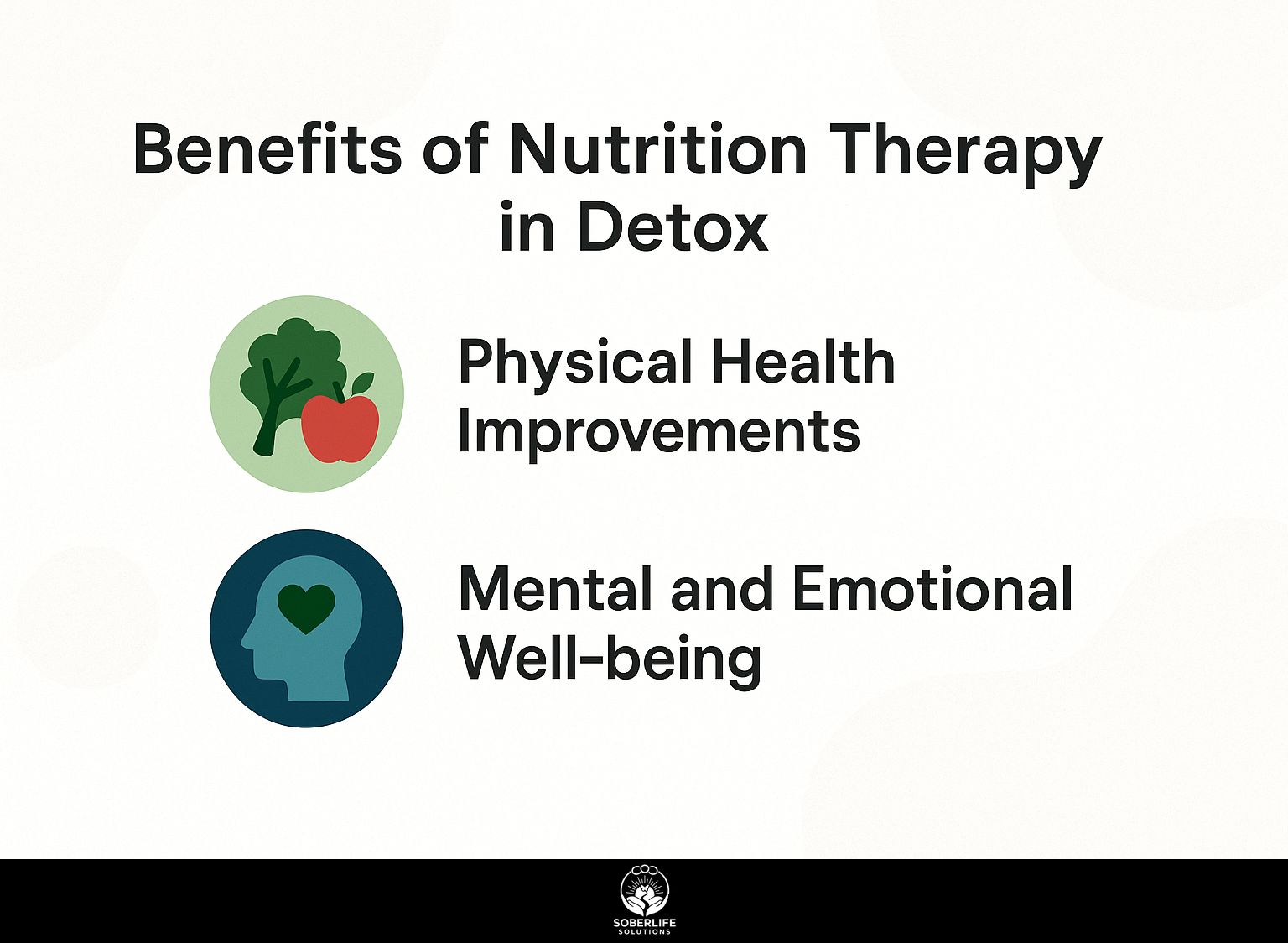
Using nutrition therapy during detox provides significant advantages. It supports better physical health and strengthens mental wellness for those recovering from alcohol dependence. This holistic approach aligns with the techniques and benefits discussed in our analysis of holistic therapies in alcoholism recovery.
Physical Health Improvements
Research indicates that targeted nutrition interventions can significantly reduce the prevalence of protein-energy malnutrition among detox patients, improving their overall physical health.
Studies have shown that adding high-quality protein sources like lean meats, legumes, and dairy can improve immune function, resulting in a 30% decrease in infection rates after intervention.
Tailoring vitamin and mineral intake through supplementation or fortified foods has demonstrated improved nutritional quality, leading to better resilience against withdrawal symptoms.
A clinical trial published in the Journal of Nutrition showed that participants receiving dietary counseling reported a 50% improvement in managing their withdrawal experiences, underscoring the impact of structured nutritional therapy. Additionally, some leading researchers in the field from ScienceDirect emphasize the importance of nutrition in aiding recovery, highlighting the necessity of comprehensive nutritional strategies during detoxification.
Mental and Emotional Well-being
A detailed nutrition therapy plan helps lessen withdrawal symptoms and aids mental health, lowering anxiety and depression during detox.
Certain nutrients are important for improving mental health. For example, vitamin B1 (thiamine) has been linked to improved mood regulation, with studies showing that deficiency can lead to increased anxiety.
Incorporating foods rich in B1, such as whole grains, legumes, and nuts, can be beneficial. A case study evaluating participants in a detox program found that those who adhered to a high-nutrient diet experienced a 30% decrease in depressive symptoms within weeks.
This evidence shows the importance of having a tailor-made nutrition plan to support mental health during recovery.
Importance of Detoxification
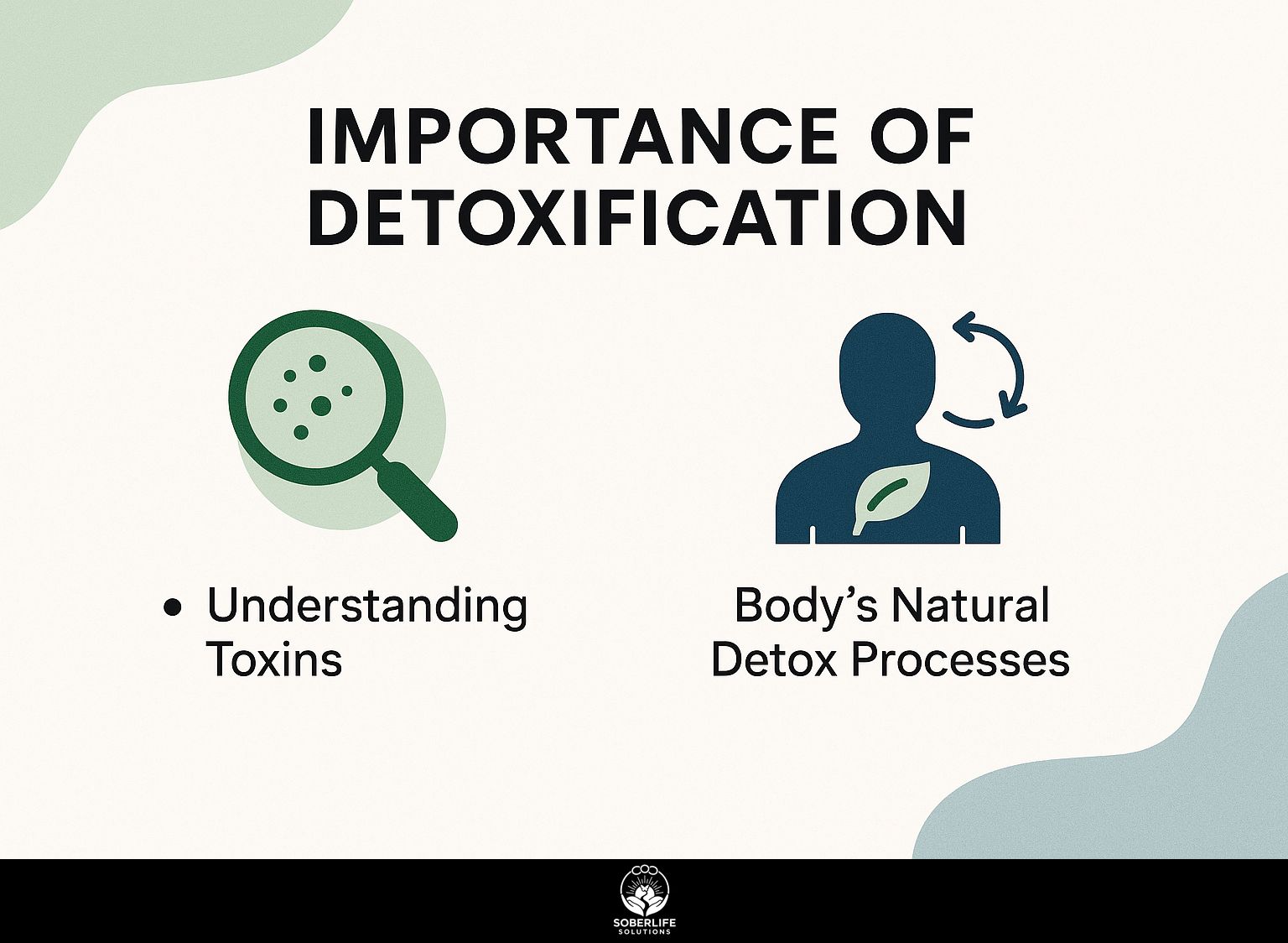
Detoxification is an important process for people with substance use disorder. It focuses on removing harmful substances from the body and helping individuals recover from alcohol use.
Understanding Toxins
Toxic chemicals from long-term alcohol use can harm the body, so completely removing them is needed to bring back good health.
Alcohol-related toxins like acetaldehyde can damage the liver and impair nutrient absorption. Nutrition therapy is important for detoxification as it helps the liver and restores necessary nutrients.
For instance, incorporating foods high in antioxidants, such as berries and leafy greens, can help combat oxidative stress. Supplements such as milk thistle and N-acetylcysteine might improve how the liver works. Drinking water and drinks with electrolytes helps remove toxins.
Putting these methods together forms a strong cleansing plan that encourages healing and improves health. For an extensive analysis of detox processes, our comprehensive study on evidence-based detox methods offers valuable insights.
Body’s Natural Detox Processes
The body naturally removes toxins through processes like liver metabolism and kidney function. Eating the right foods can help these functions work better.
To improve these detox processes, eat whole foods that help the liver, like leafy greens, garlic, and beets.
Drinking enough water helps the kidneys remove toxins.
Consider dietary guidelines that emphasize reducing processed foods and sugars, which can burden the liver.
Incorporating antioxidant-rich foods like berries and nuts can further aid in combating oxidative stress, thereby enhancing recovery and overall health.
Changing your diet can greatly support your body’s natural detox process.
Guidelines for Effective Nutrition Therapy
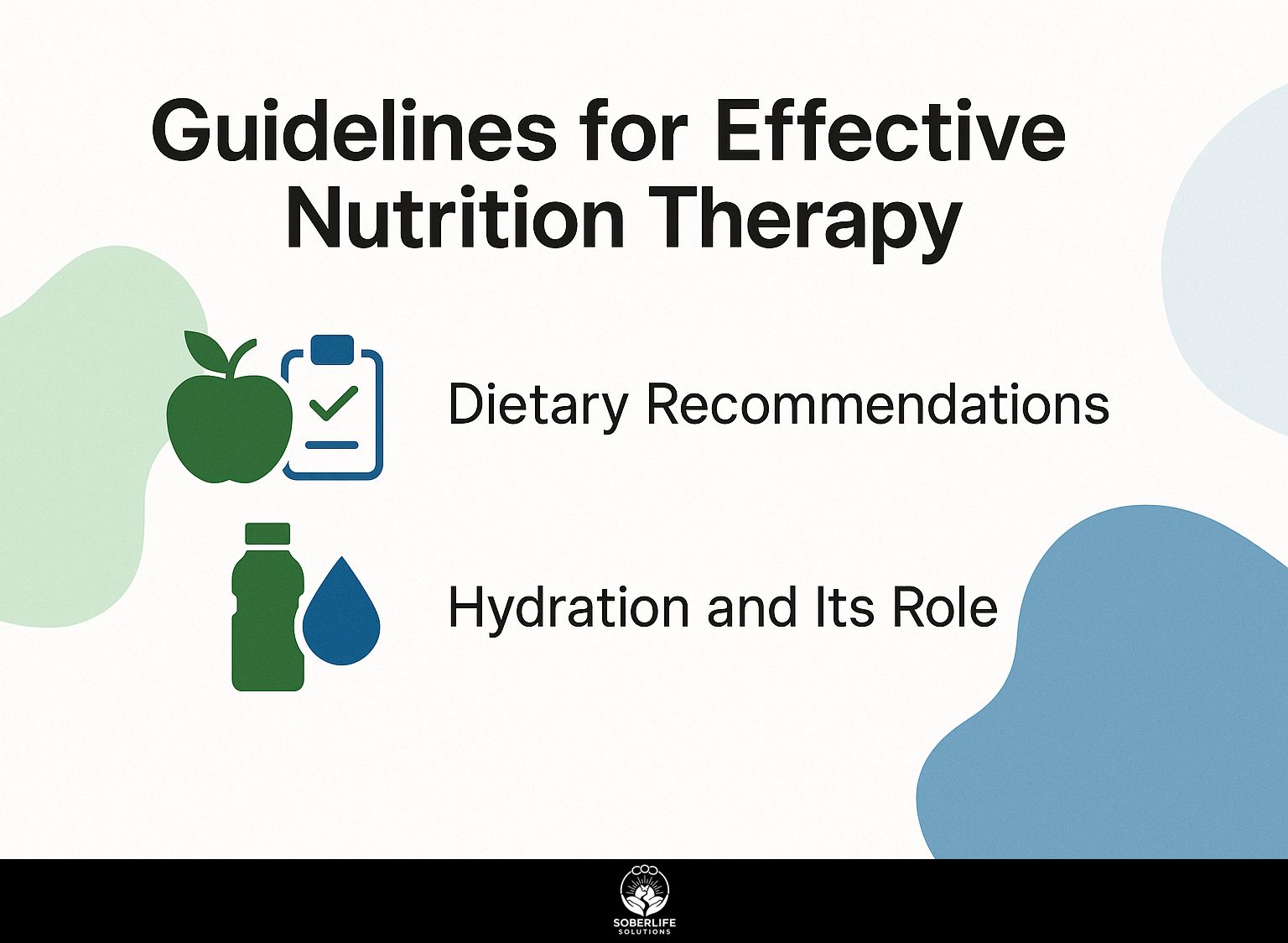
Following the right diet and hydration plan is important for successful nutrition therapy during detox, with adjustments made for each person’s needs. If interested, those seeking more in-depth information can explore our detailed insights on the benefits and integration of nutrition therapy in alcoholism recovery.
Dietary Recommendations
Dietary recommendations for detox patients emphasize the intake of complex carbohydrates, proteins, and micronutrients to promote recovery and energy balance.
- Include foods like quinoa, brown rice, and sweet potatoes for complex carbs, which help keep blood sugar steady.
- Include lean proteins like chicken, fish, and legumes to aid muscle recovery.
- For micronutrients, focus on leafy greens like kale and spinach, which are high in vitamins A, C, and K.
Preparing meals ahead can improve your diet: make soups and salads in advance, cook grains in bulk, and have healthy snacks like nuts and fruit available to prevent unhealthy impulse eating.
Drinking enough water is important; try to have at least eight glasses each day.
Hydration and Its Role
Drinking enough water is important during detox because it helps remove toxins and helps your metabolism work properly.
To maintain optimal hydration levels, aim for at least eight 8-ounce glasses of water daily, but individual needs may vary based on activity and climate.
Drinking herbal teas and drinks high in electrolytes, such as coconut water, can improve hydration.
To encourage fluid intake, consider:
- Setting reminders on your phone
- Carrying a reusable water bottle to track consumption
- Infusing water with fruits and herbs for added flavor
Having a glass of water before each meal can help you stay well-hydrated.
Common Nutritional Approaches
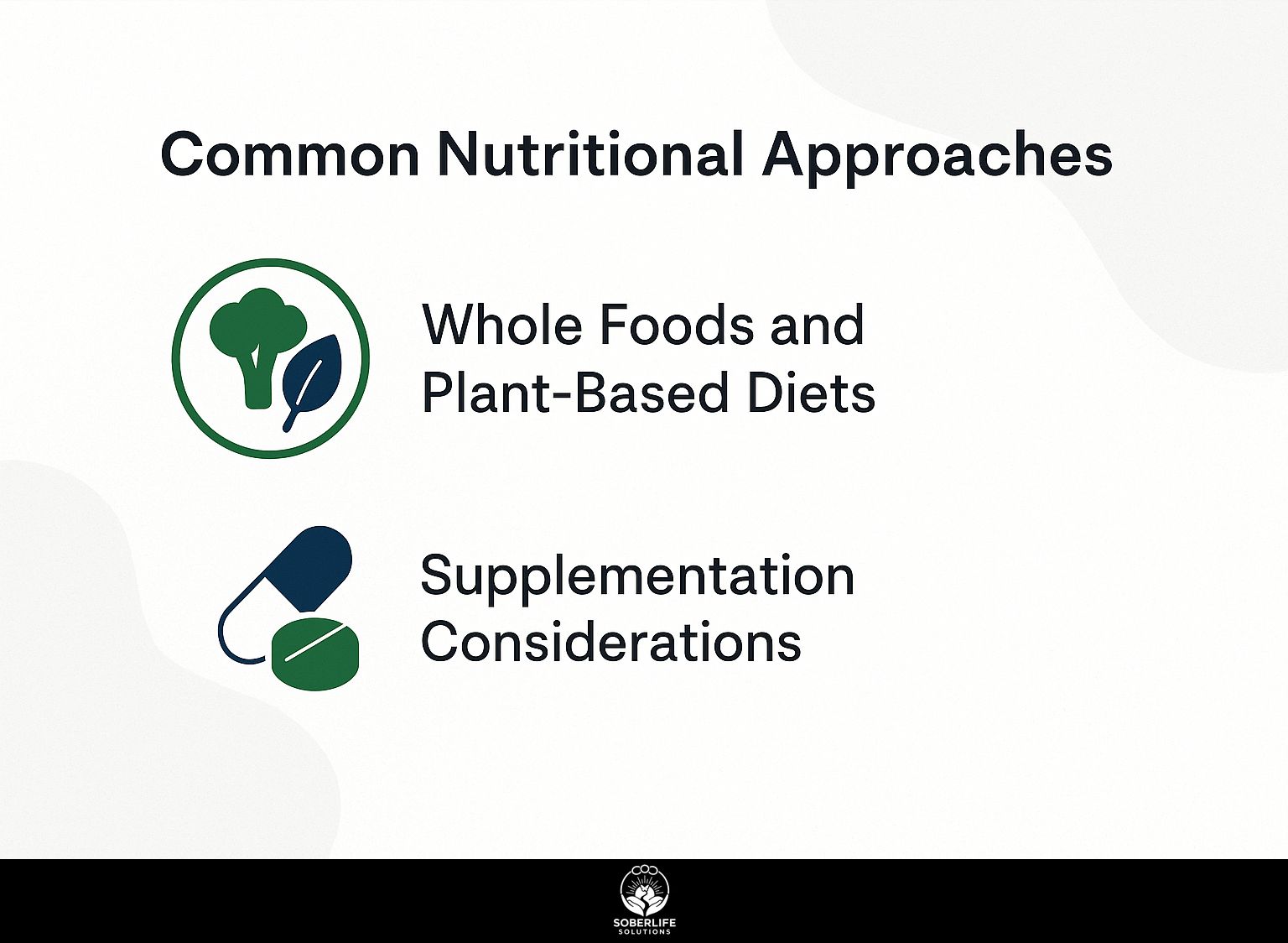
Different nutritional strategies can improve the detox process, such as diets based on whole foods and specific supplements to fix nutrient gaps.
Whole Foods and Plant-Based Diets
Adopting a whole foods or plant-based diet during detox can lead to significant improvements in nutritional quality and overall health outcomes.
These diets emphasize unprocessed foods, prioritizing fruits, vegetables, whole grains, legumes, nuts, and seeds. Including foods like quinoa, chickpeas, and kale in your daily meals provides essential nutrients and supports body detoxification.
People who have experienced heart disease say they feel more energetic and lose weight after they change their eating habits. Meal planning apps can organize your weekly meals, simplifying the process of maintaining this lifestyle and ensuring a balanced diet. Embracing these dietary changes can be particularly beneficial for those in recovery from alcoholism, as maintaining a balanced diet is crucial for overall health and nutrition during this journey.
Supplementation Considerations
Taking supplements with vitamins like B1 can help address nutrient shortages during detox.
Other important supplements include magnesium for muscle relaxation and sleep quality, which helps counteract detox symptoms.
Omega-3 fatty acids can help maintain brain health during this period, while antioxidants like Vitamin C help the immune system.
To understand what you need, talk to a doctor for personal advice and think about getting tested for particular deficiencies.
It’s important to take these supplements with meals to help your body absorb them better. Follow the dosage instructions on the labels and change them if needed based on how your body reacts.
Frequently Asked Questions
What is nutrition therapy in detox and why is it important?
Nutrition therapy in detox is a treatment approach that focuses on improving a person’s diet to support their body’s natural detoxification processes. It matters because a well-fed body can remove toxins better, easing withdrawal symptoms and improving health.
What are the benefits of incorporating nutrition therapy in detox?
The benefits of nutrition therapy in detox include improved energy levels, reduced cravings, better mental clarity, and a stronger immune system. It can also help with weight management, hormone balance, and support healthy liver and kidney function.
What are some guidelines for implementing nutrition therapy in a detox program?
The first step is to consult with a healthcare professional to determine any specific dietary needs. It is also important to include a variety of fruits, vegetables, whole grains, and lean proteins in the diet. It is suggested to eat less processed and sugary foods, and drinking enough water is important for detoxification.
Can nutrition therapy in detox help with withdrawal symptoms?
Yes, proper nutrition can help alleviate symptoms such as nausea, headaches, and fatigue during detox. Giving the body important vitamins, minerals, and antioxidants can lessen these symptoms and aid the body’s normal detox process.
Is detox nutrition therapy right for everyone?
Nutrition therapy in detox can be beneficial for most individuals, but it is essential to consult with a healthcare professional before starting any new diet. People with specific medical conditions or allergies may require a modified approach to nutrition therapy in detox.
Can nutrition therapy in detox be combined with other treatment methods?
Yes, nutrition therapy can be used alongside other treatment methods, such as medication and therapy, to support the body’s detox process. It can also support better health, making it a useful part of any detox program.

